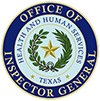Medicaid providers penalized for illegal dental solicitation
The OIG continues to pursue a variety of cases related to dental solicitation. The OIG conducts provider investigations as part of its mission to detect, prevent, and deter fraud, waste and abuse in Medicaid and CHIP program delivery. In an effort to educate providers about how to avoid illegally soliciting patients, the OIG is sharing a few cases as an educational tool.
Illegal dental solicitation
The Texas Administrative Code prohibits providers from offering clients inducements to influence their health care decisions. Solicitation can include:
- Unsolicited personal contact, such as direct mail, telephone and door-to-door solicitation.
- Canvassing neighborhoods, offering free transportation to clients.
- Offering gifts or other inducements designed to influence a client’s choice of provider.
- Cash, cash equivalents and gift cards in any amount are not permitted. These items include gift cards and dental services or credits to parents who bring in Medicaid-eligible patients for treatment.
OIG investigations
Solicitation cases are initiated at the OIG through a variety of sources. Some begin with allegations from patients or office staff made by calling the OIG Fraud Hotline or making a report through the OIG’s website, ReportTexasFraud.com. Some cases are self-initiated by the OIG through a fraud detection operation (FDO). An FDO is a data-driven investigation designed to review providers that appear as statistical outliers among their peers and assess whether this outlier status is due to program violations, fraud, waste, or abuse. It’s an advanced data analytics method of assessing issues that may or may not lead to a full-scale investigation.
Sanctions against providers who solicit patients can include exclusion from the Medicaid and CHIP programs, disciplinary action from the Texas State Board of Dental Examiners, and monetary penalties. Depending on the conduct, e.g., whether there is resulting patient harm, solicitation penalties may be up to $15,000 per violation, in addition to potential penalties based on the paid claims amount.
Sample cases
A marketer previously employed by a North Texas dentist called the OIG Fraud Hotline to report a dentist was engaging in illegal marketing and billing for work that wasn’t performed. The caller offered to provide documentation and a list of patients willing to corroborate the allegations. The OIG reviewed claims data on the practice, which revealed patterns associated with patient solicitation and questionable billing practices. Following a full investigation, the case concluded when the OIG reached a settlement with the provider, who agreed to pay $125,000 in penalties.
A dentist and dental practice with offices in Dallas and Plano were excluded from Medicaid for four years and fined $10,000 in penalties following an investigation and settlement. The OIG examined a six-year period of claims data and clinical records, discovering the provider billed for specific dental codes when the services were either not rendered, inappropriate or out of compliance with Medicaid policy. The investigation also revealed that the provider engaged in prohibited marketing and solicitation that included improper transportation and offering cash payments to potential patients.
Solicitation was part of an OIG settlement with an Arlington dental practice for $405,107. The investigation found that over a two-year period, the provider billed for specific dental codes that were either inappropriate or out of compliance with Medicaid policy. In addition, the investigation found that the provider used marketers who offered cash incentives to potential patients.
Doing your part
The OIG created a brochure to educate providers about the signs and consequences of illegal dental solicitation in Medicaid. Download it from https://tinyurl.com/OIG-DentalBrochure.
Maintaining a standard of care and fighting fraud is a collaborative effort. If you believe a provider is illegally soliciting Medicaid patients, please notify the OIG by calling 800-436-6184 or use the Report Fraud form found on the OIG website at ReportTexasFraud.com. Your identity and contact information will be kept confidential to the extent permitted by law.

